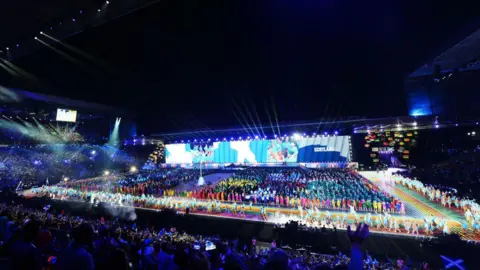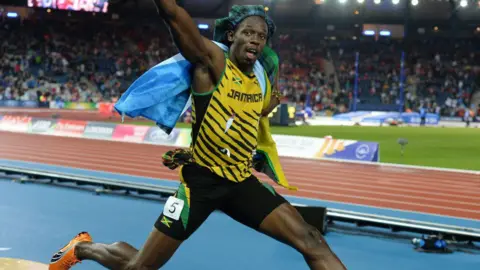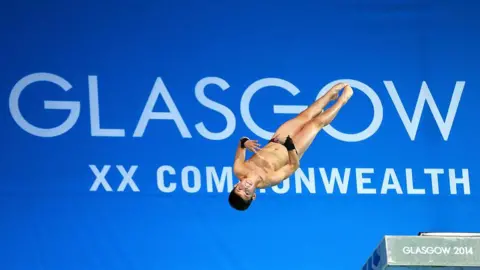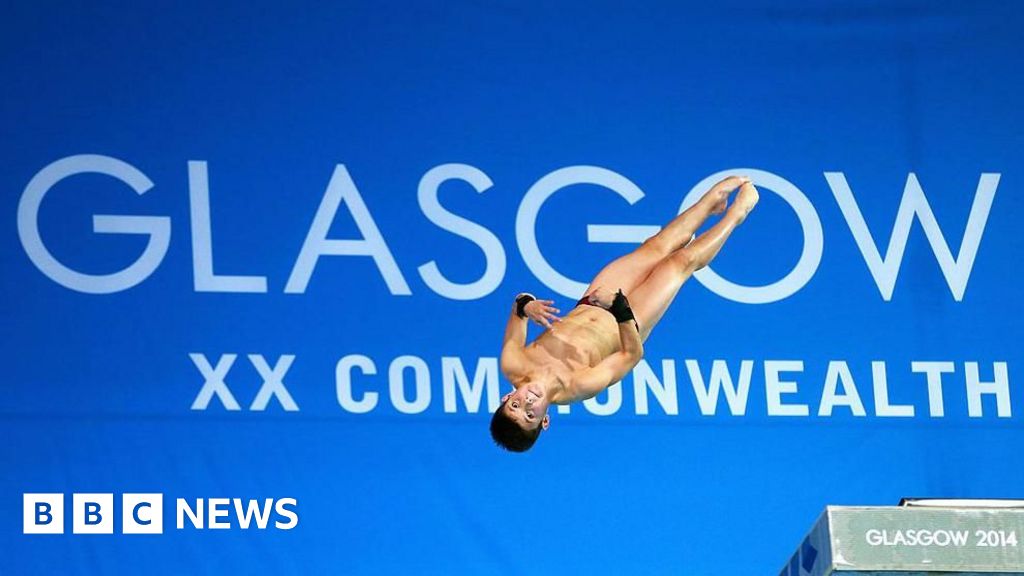 SNS
SNSGlasgow is to host the 2026 Commonwealth Games after a deal was backed by the Scottish government.
A scaled-down version of the event, featuring fewer sports and athletes, will return to the city 12 years after it last hosted the Games.
The Australian state of Victoria was originally chosen to stage the multi-sport event but withdrew as host due to rising costs.
Australian authorities have promised “a multi-million pound investment” to help finalise the deal.
Health and Sport Minister Neil Gray held talks with Commonwealth Games Australia on Monday to discuss funding, and received the assurances the Scottish government were looking for.
It has now written to the Commonwealth Games Federation (CGF) to officially back a “a scaled back, but high-quality” event which will see see 10 sports take place across four venues in the city, with athletics held at Scotstoun Stadium and swimming taking place at Tollcross.
Gray said the fact that the city was asked to step in and host the games was a “testament to Glasgow and Scotland’s fantastic reputation for hosting international events”.
He said: “In 2026 all eyes will once again be on Glasgow, and I have every confidence that Scotland’s largest city will provide a fitting platform for some of the world’s top athletes.”
He reiterated that “financial resources are limited” but confirmed the government was pleased to support the “strong event proposal”.
 SNS
SNSCGF president Chris Jenkins said it would work closely with Commonwealth Games Scotland to formally announce Glasgow as the host city as soon a possible.
He said: “We believe Glasgow 2026 will be an important first step in our commitment to reset and reframe the Commonwealth Games as a co-created, sustainable model that minimises costs, inspires athletes, and excites hosts and International federations.”
He confirmed that Commonwealth Games Australia had contributed £2.3m to “enhance the event”.
Ian Reid, chairman of Commonwealth Games Scotland (CGS), said he was “delighted” at the confirmation.
He said: “We have been clear from the outset that our Games concept for Glasgow 2026 aligns with the CGF’s strategy to make the Games more accessible for future hosts, whilst ensuring that public funds are not required.
 Getty Images
Getty ImagesMr Reid added: “Glasgow is one of the few cities in the Commonwealth that can deliver on time given its world-class facilities, experienced workforce and strong supply chain.
“This is a really exciting opportunity and we will be working hard over the coming days to bring the final pieces of the puzzle together.”
A final decision was taken at a cabinet meeting on Tuesday morning.
Organisers have stated the Games will come at no cost to the public purse, with funding coming from compensation paid to the CGF after the Australians pulled out.
The UK government will provide financial support in the event of any increased security threat but had refused to completely underwrite the Games.
Gray previously insisted that there was “a reputation risk as well as financial risk” for Scotland in taking on hosting duties again, and that no public funds could be used.
The total budget for the Games is expected to be about £114m.
Struggle to find hosts
Glasgow last hosted the Games in 2014 at a cost of £543m, with 17 sports taking place in an event praised by organisers as the best ever.
The 2026 version will be a more modest affair, but it it is not yet clear which sports will be cut.
There will be no athlete’s village and any opening and closing ceremonies are expected to be scaled back.
The Commonwealth Games Federation (CGF) has struggled to find hosts for the event in recent years.
Durban was supposed to be the first city in Africa to stage the Games in 2022, but were stripped of hosting rights in 2017 after running into money troubles.
Birmingham and the British government intervened to save the event, stumping up a combined $1bn for what became the best attended Games on record.
Victoria then dropped out in July 2023 after the projected cost for the event became “well and truly too much” for the state to bear, while other possible hosts such as Malaysia and Singapore declined to step in.
The 12-day competition was expected to cost more than A$6 bn (£3.13bn; $4.09bn).


